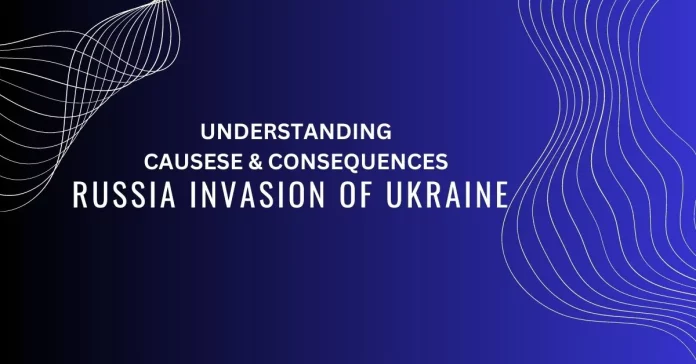The Russian invasion of Ukraine in 2014 is a complex issue that has had significant socio-economic, political, and strategic consequences on the world. The invasion, which began in February 2014, has been fueled by a number of core causes that range from political to strategic.
The core causes of Russian Invasion of Ukraine
There are several core causes of the Russian invasion of Ukraine. The first is the political tension between Ukraine and Russia, which dates back to the Soviet era. In particular, Ukraine’s efforts to move closer to the West and away from Russian influence have been a source of tension between the two countries. Another key cause is the strategic importance of Ukraine to Russia, which sees Ukraine as a buffer zone between itself and NATO. Additionally, the economic and strategic importance of Crimea, which was annexed by Russia in 2014, was also a significant factor in the invasion.
In a nut shell Russia wants to invade Ukraine due to historical, cultural, geopolitical, ethnic, and domestic political factors, including its view of Ukraine as part of its sphere of influence, its concern about Ukraine’s alignment with the West, the annexation of Crimea, the presence of a significant Russian-speaking population in Ukraine, and the desire of the Putin government to bolster domestic support.
The devastating impact on Pakistan and its severe lesson for the country’s survival
The Russian invasion of Ukraine has had a devastating impact on Pakistan, particularly in terms of its impact on regional stability. Pakistan shares a border with Afghanistan, which has been in a state of conflict for over two decades. The Russian invasion of Ukraine has further destabilized the region, making it even more difficult for Pakistan to ensure its own security.
Socio-economic, political, and strategic consequences of the Russian invasion of Ukraine
The Russian invasion of Ukraine has had significant socio-economic, political, and strategic consequences on the world. The invasion has led to the displacement of millions of people, with many fleeing to neighboring countries such as Poland and Turkey. The conflict has also had a significant impact on the Ukrainian economy, with the country’s GDP shrinking by almost 20% since the invasion began. Additionally, the invasion has had a significant impact on the global oil and gas markets, as Russia is one of the world’s largest producers of these commodities.
learned from the Russian invasion of Ukraine
The Russian invasion of Ukraine serves as a lesson for countries like Pakistan that are also dealing with internal security issues. The invasion highlights the importance of ensuring strong and stable governance, as well as a robust security apparatus. It also underscores the importance of building strong international relationships and alliances, particularly with neighboring countries. Ultimately, the invasion serves as a reminder that regional stability is key to national survival.
Conclusion
The Russian invasion of Ukraine is a complex conflict with significant socio-economic, political, and strategic consequences on the world. The core causes of the conflict include historical, political, and economic factors, and it serves as a severe lesson for Pakistan on the dangers of territorial aggression.














